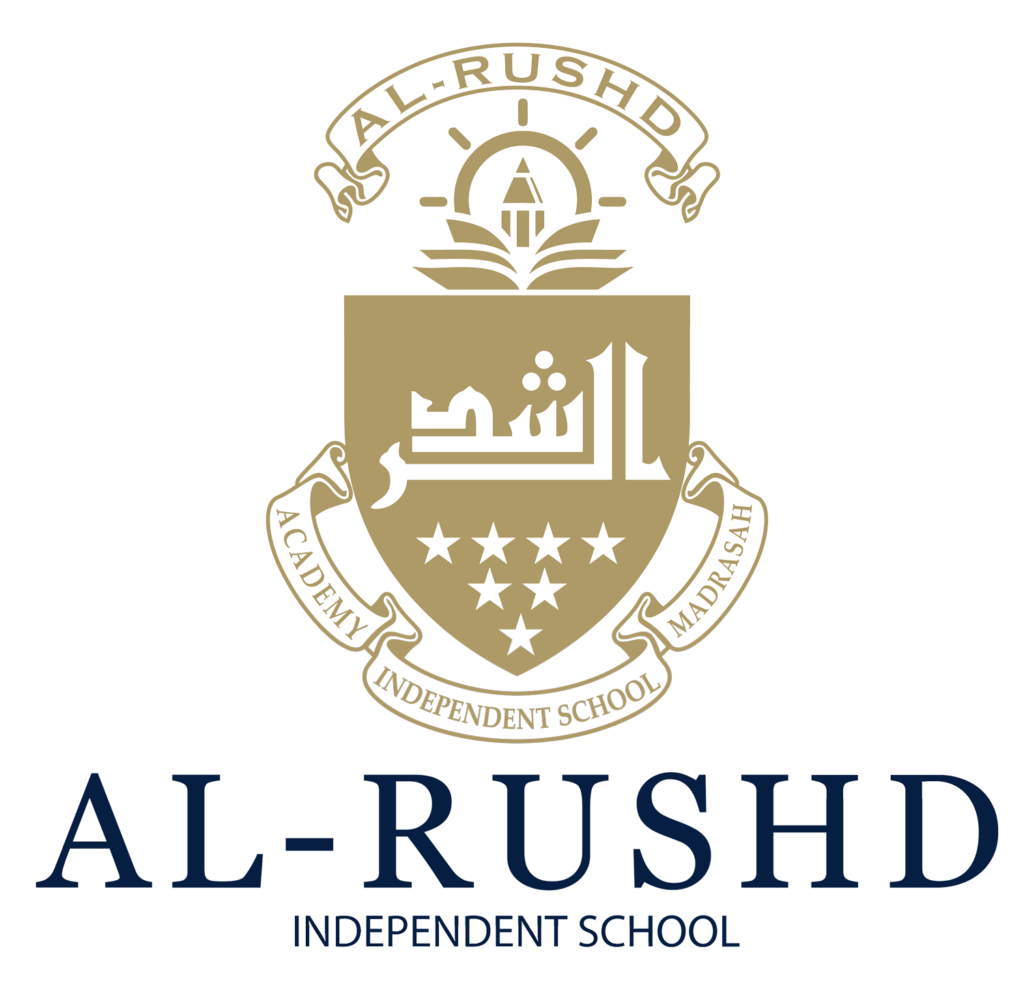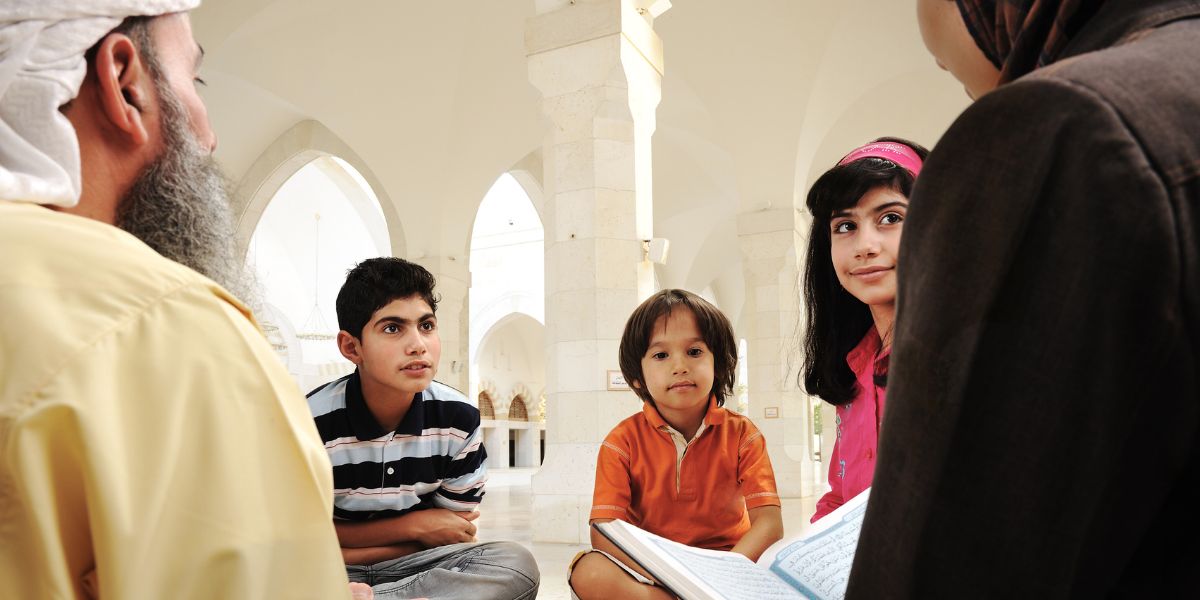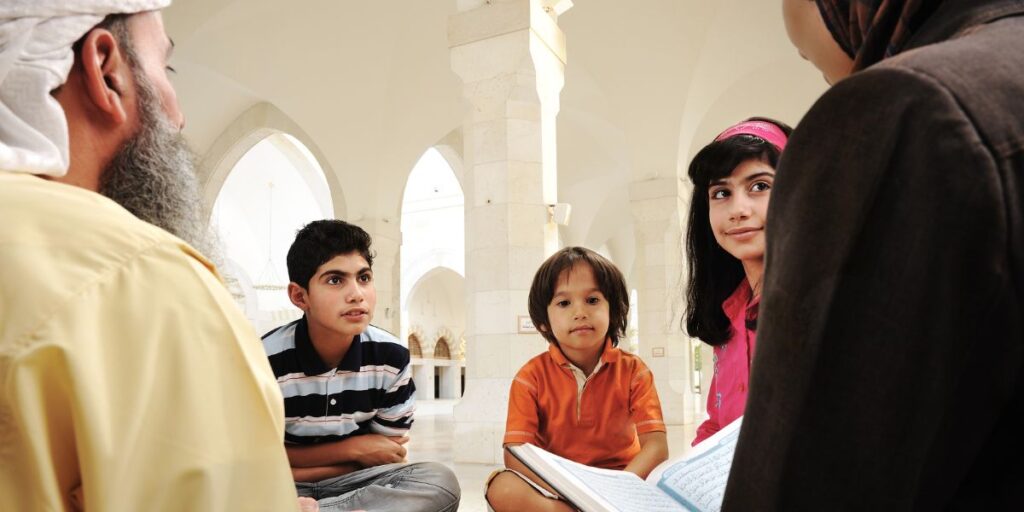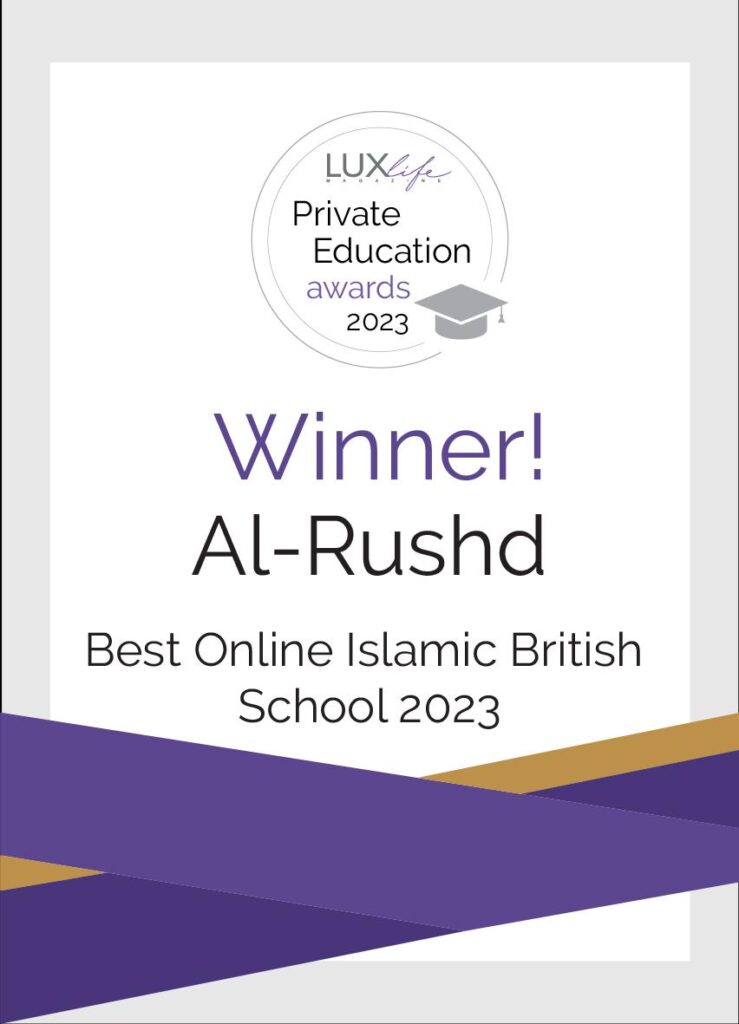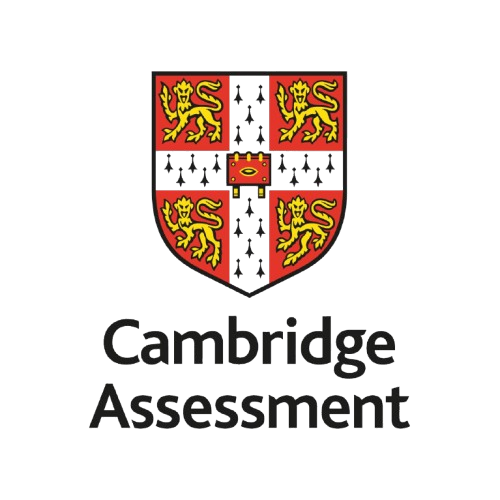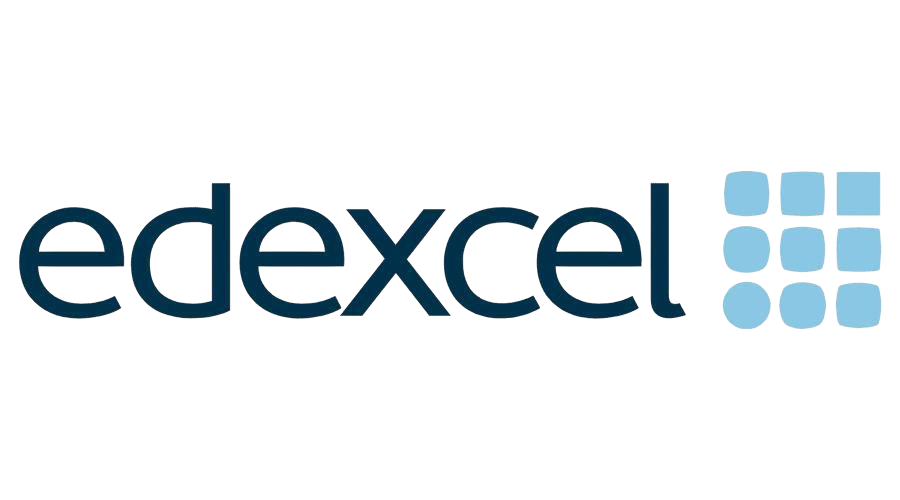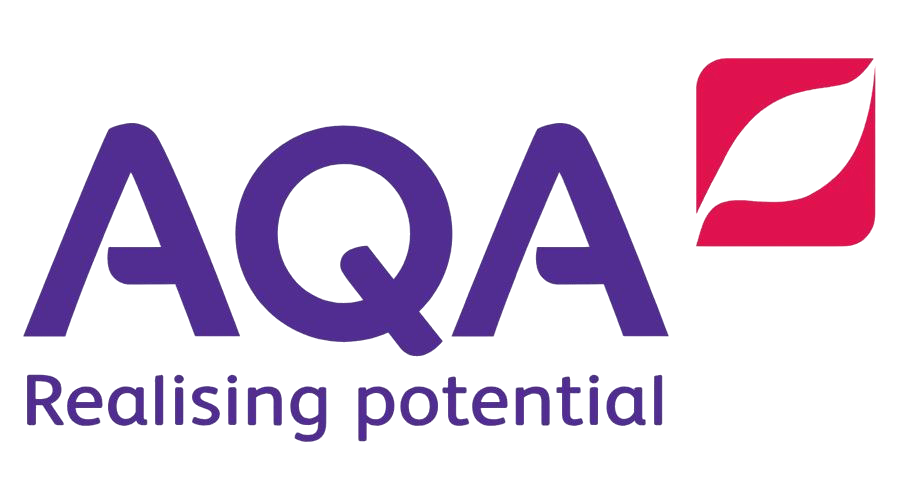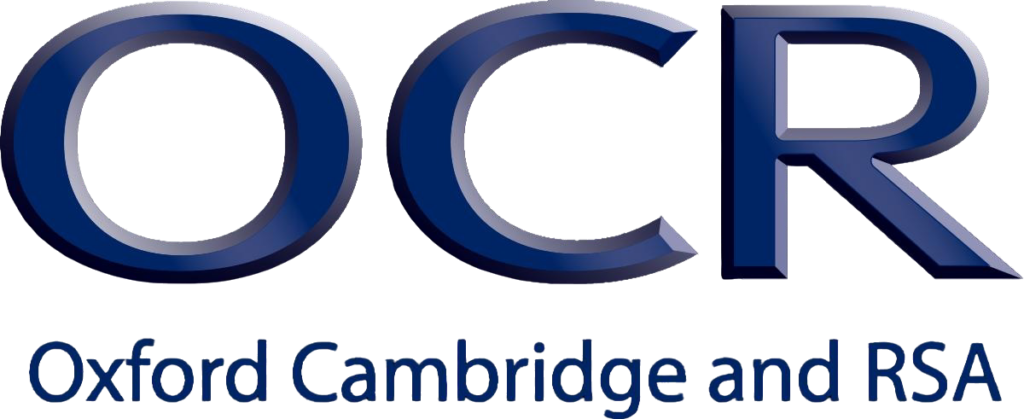For Muslim families in the UK today, Islamic education is still essential. It shapes a student’s character, morals, and spirit in ways that go beyond academics. Many parents want their children to have a deeper theological foundation because they are concerned about the moral implications of secular institutions. Consequently, there is now more interest in an organized Islamic school curriculum.
Nearly 150 Muslim schools, most of which are independent, are currently open full-time in England. Many families also choose to educate their children at home. This guide covers an Islamic curriculum, its importance from childhood to adolescence, and how schools and home programs (like Al-Rushd) integrate formal education with faith.
What is the Islamic School Curriculum?
The main subjects of Islamic knowledge and practice are covered in an Islamic school curriculum. Aqeedah (fundamental beliefs such as faith in Allah, angels, prophets, etc.), Hadith (sayings and practices of the Prophet ﷺ), Fiqh (Islamic law and worship), Seerah (biography of Prophet Muhammad ﷺ and Islamic history), and Arabic are the usual subjects that students study. These courses provide a solid Islamic basis: Fiqh teaches proper devotion, such as prayer, fasting, and almsgiving, while Aqeedah helps students better grasp their beliefs.
Islamic schools intentionally include faith and character into every class, setting them apart from secular ones. An Islamic curriculum incorporates Islamic ideals alongside academics rather than treating religion as a distinct subject. One curriculum structure, for example, states that Islamic studies seeks to develop moral perfection and strong Aqeedah, internalizing ideals through school life and activities in addition to lessons. In reality, schools frequently strike a balance between religious subjects and the UK national curriculum.
Many contemporary Islamic schools, such as Al-Rushd, organize daily schedules to allow pupils to devote time to academic and spiritual pursuits. To keep faith at the forefront, they might start the day with prayers and study of the Quran before moving on to English, math, and science. This well-rounded strategy fosters a Muslim identity while maintaining excellent academic standards.
A significant emphasis is on character education. Islamic education places a strong emphasis on moral growth and qualities. Students who learn about the Qur’anic values of justice, patience, humility, and honesty can better make ethical decisions and develop a solid moral foundation. To put it briefly, an Islamic school curriculum incorporates common academic subjects into a framework of morality and religion. This all-encompassing combination equips kids to thrive academically while adhering to Islamic principles.
Islamic Curriculum for Children
Early Islamic education promotes the development of a child’s beliefs and ethics. Experts emphasize that exposing children to Islam in their early years fosters their spiritual development as well as their moral and ethical growth. Age-appropriate religious principles can be taught to preschoolers as well. Simple lessons in Arabic and the Quran are taught daily in many Islamic kindergartens and nurseries. For instance, young children are taught stories about Allah and the Prophet ﷺ, as well as simple Arabic letters and brief surahs. Spiritual learning is organic and enjoyable because of this early exposure.
Young children’s education focuses on routines, play, and tales. Children learn best through firsthand experience, so hands-on and multisensory activities are encouraged. Programs blend fun and spirituality via interactive, thematic sections. A class might, for example, use puppets or art projects to tell the tale of the Prophet’s charity. Characteristics and Arabic language proficiency are simultaneously developed with this active learning method.
Parents’ involvement is also essential because they set an example of excellent manners, make short du’a together, and read stories from the Quran before bed. “Seeking knowledge is an obligation upon all the Muslims,” stated Prophet Muhammad ﷺ, emphasizing that even children should receive religious guidance. Communities also assist; weekend programs and mosque playgroups present the Quran and Eid stories in a fun way.
The curriculum becomes more complex as kids become preteens. Islamic studies that are age-appropriate are also included, such as studying the Five Pillars, memorizing brief surahs, and studying more basic hadiths and Prophetic tales. Primary school classes may cover akhlaq (good manners) and fundamental fiqh (how to pray, the value of honesty). Parents and schools stress values at every level. Raising children with a strong sense of spirituality is the aim. From a young age, children must be taught the virtues of kindness, honesty, civic duty, and religion. A solid basis is thus laid by an Islamic curriculum for homeschooling, which fosters character and a love of Allah so that the faith is a natural part of everyday life.
Islamic Homeschooling Curriculum UK
As more Muslim families look for flexible education at home, Islamic homeschooling is becoming more popular in the UK. Homeschooling is entirely permitted in the UK as long as parents give a suitable, full-time education, “otherwise,” at home. Many Muslim families use this freedom. According to research, hundreds of Muslim children attend supplemental madrasahs or learn at home. There are a lot of community classes and about 150 full-time Muslim schools in Britain. The rising demand for faith-based education is reflected in these figures. Parents create support groups and exchange materials for Islamic home education in UK cities.
Families can decide how strict or flexible their homeschooling curriculum is. Like schools, some have a rigorous daily schedule that includes math, science, and English in the morning and Quran, Arabic, Seerah, and Islamic studies in the afternoon. Others choose a more laid-back pace, including education into daily activities like storytelling, crafts, and neighborhood gatherings. Both strategies have advantages.
A precise timetable is provided by structured online schools such as Al-Rushd and Crescent Pathways. For instance, Al-Rushd offers live interactive lectures four days a week and gives parents and kids homework to complete. This helps pupils stay on course while they’re at home. Alternatively, self-directed families may utilize apps or worksheets in one-hour increments to accommodate their requirements.
In the UK, there are plenty of materials available for Islamic homeschooling. Comprehensive online programs that combine Islamic and British curricula are available through Crescent Pathways and Al-Rushd’s Virtual Madrasah. Students at Al-Rushd Independent School have access to various disciplines, such as Arabic, the Quran, Islamic studies, English, mathematics, and sciences. Similarly, Crescent Pathways offers live classes on Islam and the Quran taught by certified instructors. In addition to complete programs, parents can prepare at home with storybooks, activity packs, and apps.
Children’s English-language Tafsir guides and Qur’an storybooks are produced by GoodWord Publishing and others. Homeschoolers are also supported by mosques and nearby Muslim schools, many host weekend maktabs where kids can learn tajweed, du’as, and adab. These after-school programs primarily augment classroom instruction by teaching Arabic and Islamic principles. Another choice is to hire a private tutor (for Arabic or the Quran).
Challenges in Implementing an Islamic Curriculum
Here are some challenges for implementing Islamic curriculum systems:
- Unavailable resources: Authentic, high-quality resources are often hard to get. Parents need to make sure that websites and textbooks support reasonable Islamic beliefs. Selecting resources that respectable organizations or knowledgeable academics have approved is crucial. Similarly, significant preparation is needed to cover Islamic studies and the UK national curriculum. Homeschooled families must schedule time for prayers, Quran study, and fundamental topics like math and English. Although schools like Al-Rushd completely integrate both, parents may find it challenging to manage without a set timetable at home.
- Student engagement: Ensuring student engagement is another problem. Islamic education needs to be innovative because young students have short attention spans. You can keep their attention by using games, stories, songs, and artwork. An excellent model for usage at home is the multisensory, hands-on approach utilized in early childhood settings. It is hard for older kids to maintain consistency in their daily lessons, particularly when distractions occur at home.
- Management: Sometimes, management becomes a vital factor. To keep students interested, teachers frequently suggest establishing a schedule and utilizing interactive resources (such as apps or tests). Peer support can also be helpful, such as setting up study groups online or at the neighborhood mosque. These obstacles can be addressed with careful preparation and ingenuity, enabling kids to get the most out of their Islamic education.
Benefits of Following an Islamic School Curriculum
Following an organized Islamic curriculum has several advantages:
- Establishes discipline: Children benefit from daily routines that include planned Quran reading, prayers, memorization exercises, and study time because they help them become more consistent and organized. Students who adopt these behaviors become more dependable daily and better time managers.
- Enhances Islamic identity: Children gain a strong sense of their background by studying the life of the Prophet Muhammad ﷺ, acquiring Arabic, and researching Islamic history. It strengthens their sense of inclusion in the global ummah and fosters pride in being Muslim.
- Promotes self-control and respect: Islamic teachings on adab (manners) emphasize patience, justice, thankfulness, and respect for elders. The Qur’an and Hadith, which provide unambiguous moral guidelines, help children learn to think critically about their behavior and make better decisions.
- Encourages academic success: Children learn how to balance priorities through a dual curriculum that combines academic and Islamic subjects. Switching between languages, memorizing the Quran, solving math problems, and studying literature help them become more focused and build strong cognitive abilities.
FAQs
Q: Which disciplines are covered in the curriculum of Islamic schools?
Ans: Both academic and religious courses are taught at Islamic schools. Arabic, Hadith (sayings of the Prophet ﷺ), Fiqh (Islamic jurisprudence), Aqeedah (Islamic beliefs), Seerah (life of the Prophet ﷺ), and the Quran (recitation, memorization, and tafsir) are typically included in religious studies. These provide a strong basis for understanding Islam. In addition, schools offer science, math, English, and other general topics according to the UK national curriculum.
In certain Islamic schools, even secular disciplines are taught from an Islamic perspective through integrated learning. This supports pupils in upholding their strong religious beliefs and academic achievement. Al-Rushd and other schools successfully strike a balance between the two.
Q: Can I legally follow an Islamic homeschooling curriculum in the UK?
Ans: In the UK, homeschooling is indeed completely legal. As long as they give their kids a proper, full-time education, parents are allowed to educate them at home. It is legitimate and lawful if an Islamic homeschooling curriculum incorporates Islamic studies with fundamental courses like science, math, and English.
Parents can choose structured online Islamic schools like Crescent Pathways or Al-Rushd, or they can create their curriculum. Maintaining a log of your child’s development and schedule is also beneficial. To keep informed and compliant, many parents look for legal counsel online and join homeschooling support groups.
Q: Is the children’s Islamic curriculum appropriate for non-Arabic speakers?
Ans: Absolutely! Numerous children’s Islamic curricula are specially modified for non-Arabic speakers. These curricula frequently introduce essential Arabic vocabulary and concepts gradually while using English as the primary language of instruction. They emphasize the ideas and real-world applications of Islamic teachings pertinent to a child’s life, and they frequently use transliteration of Arabic terms to help with pronunciation. Regardless of the child’s original language, interactive games, captivating narrative, and multimedia tools are commonly used to make learning fun and accessible.
This group is specifically served by many online resources and educational materials, guaranteeing a thorough and developmentally appropriate Islamic education. For instance, Al-Rushd incorporates Islamic studies into its British curriculum so that all students, regardless of Arabic proficiency, can understand.
Q: How can I teach my child both the national and Islamic curricula?
Ans: It frequently takes a careful and comprehensive approach to combine your child’s national and Islamic education. This can be accomplished by choosing materials and initiatives that specifically combine the two. Seek out educational resources that highlight pertinent moral and ethical viewpoints while teaching national curriculum subjects via an Islamic lens. Add age-appropriate lessons on Islamic studies, which cover the Quran, Hadith, Islamic history, and ethics, to the national curriculum.
Include Islamic principles and customs in everyday activities and educational endeavors. Look for online courses or cooperatives that provide this integrated approach. An outstanding illustration of this is Al-Rushd, which offers the British national curriculum while skillfully incorporating in-depth Islamic studies to create a well-rounded educational experience.
Q: Do accredited online Islamic homeschooling programs exist?
Ans: Indeed, there are several accredited online Islamic homeschooling programs. Following accepted educational standards, these schools frequently provide a structured curriculum that combines academic courses with in-depth Islamic study. Credibility and quality of the curriculum are guaranteed by accredited educational organizations. To ensure successful learning, many of these online schools use interactive learning environments, certified instructors, and evaluation techniques.
For Muslim families that decide to homeschool, they offer a flexible and all-inclusive educational solution by frequently accommodating all age groups and learning levels. Platforms that provide recognized online Islamic education include Sahlah and Everyday Ibaadah Academy. Al-Rushd offers an organized online learning environment with integrated Islamic subjects, all while adhering to the British curriculum.
Final Thoughts
In summary, the Islamic school curriculum in the UK can be adaptable while maintaining its traditional roots. Parents mix and match community support and resources. They might create their own schedule of secular courses and Islamic studies or use an organized online school. In any case, families can stay connected to curriculum guidance and organized with the help of networks like Al-Rushd’s support group.

